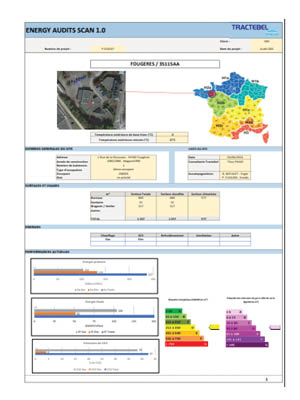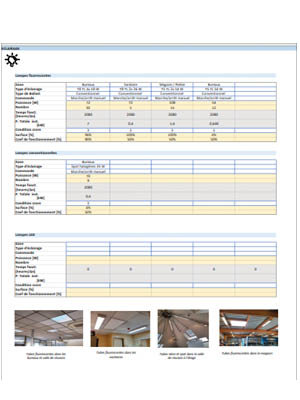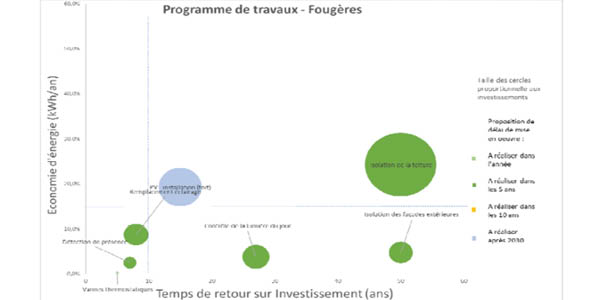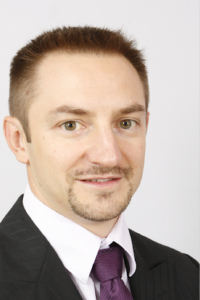Mandatory 60% less energy consumption for French tertiary buildings by 2050
It’s a first: the French building sector is subject to mandatory results in terms of energy efficiency. New regulations came into force in September 2021, obliging occupants and owners of tertiary buildings - those that house public authorities, companies and associations - to achieve ambitious energy savings by 2030, then 2040 and 2050, with respectively 40%, 50% and 60% less energy consumption compared to 2010 through 2019.
Multinational utility company ENGIE wanted to set an example throughout its vast portfolio of buildings. To do this, it chose Tractebel to provide it with an inventory of its buildings and a costed action plan per building.
Since February 2021, our teams from France and Belgium have been collaborating to develop and adapt our energy efficiency calculation tools to make them even more effective, precise and reliable. We have developed a new energy audit tool for this mission, but also for other upcoming mandates in Belgium and France. These multilingual, multicultural tools are partially funded via the Community of Practice Energy Efficiency.

Three of the 140 ENGIE buildings undergoing Tractebel energy audits ahead of ambitious energy savings goals. Left: ENGIE Nice - Center: ENGIE Nancy - Right: ENGIE Nevers
The tool was initially tested on the audit of 10 pilot sites. It will be deployed, along with all the associated work methodology, to 140 ENGIE sites throughout France by April 2022. The objectives are ambitious: on the one hand in terms of an energy saving target, which prompts us to be creative and to develop our technical skills; and on the other hand in terms of budget. With limited time allotted to each site, we must be rigorous, organized and highly collaborative and efficient in our working methods.


Our energy audit tool in action: Fougères site results

Fougères works plan including estimated return on investment
Bravo to Maria PRIETO, Tobie NACHTERGAELE, Ruben VANSTRAELEN, and Thuy PHAM and our other colleagues and friends from Tractebel France, for the development of the tool. Our multilingual and multicultural solution was coordinated and partially funded via the Community of Practice Energy Efficiency.
“We welcomed this opportunity to improve upon our energy efficiency calculation tool, and to develop an energy audit tool to help ENGIE reach these ambitious energy-saving targets. We look forward to putting these multilingual tools to use to help other organizations reach their energy targets, across France and across borders. Drastically cutting energy consumption in tertiary buildings will result in financial savings and carbon footprint reduction, thus also contributing to a more sustainable future on a global scale.”


Thuy Pham
Project engineer
Thomas Herber
Product development and
innovation manager